May 24, 2025 | 16:45 GMT +7
May 24, 2025 | 16:45 GMT +7
Hotline: 0913.378.918
May 24, 2025 | 16:45 GMT +7
Hotline: 0913.378.918
On March 20, 2025, Japan Vietnam Fertilizer Company (JVF) marked an important step forward in the journey of agricultural innovation when working with the strategic partner XAG Mekong, a company operating in the field of supplying agricultural drones.
This event is not merely a fertilization activity but also shows the strong commitment of Japan Vietnam Fertilizer to the application of modern technology in sustainable agricultural production, especially in the Mekong Delta.
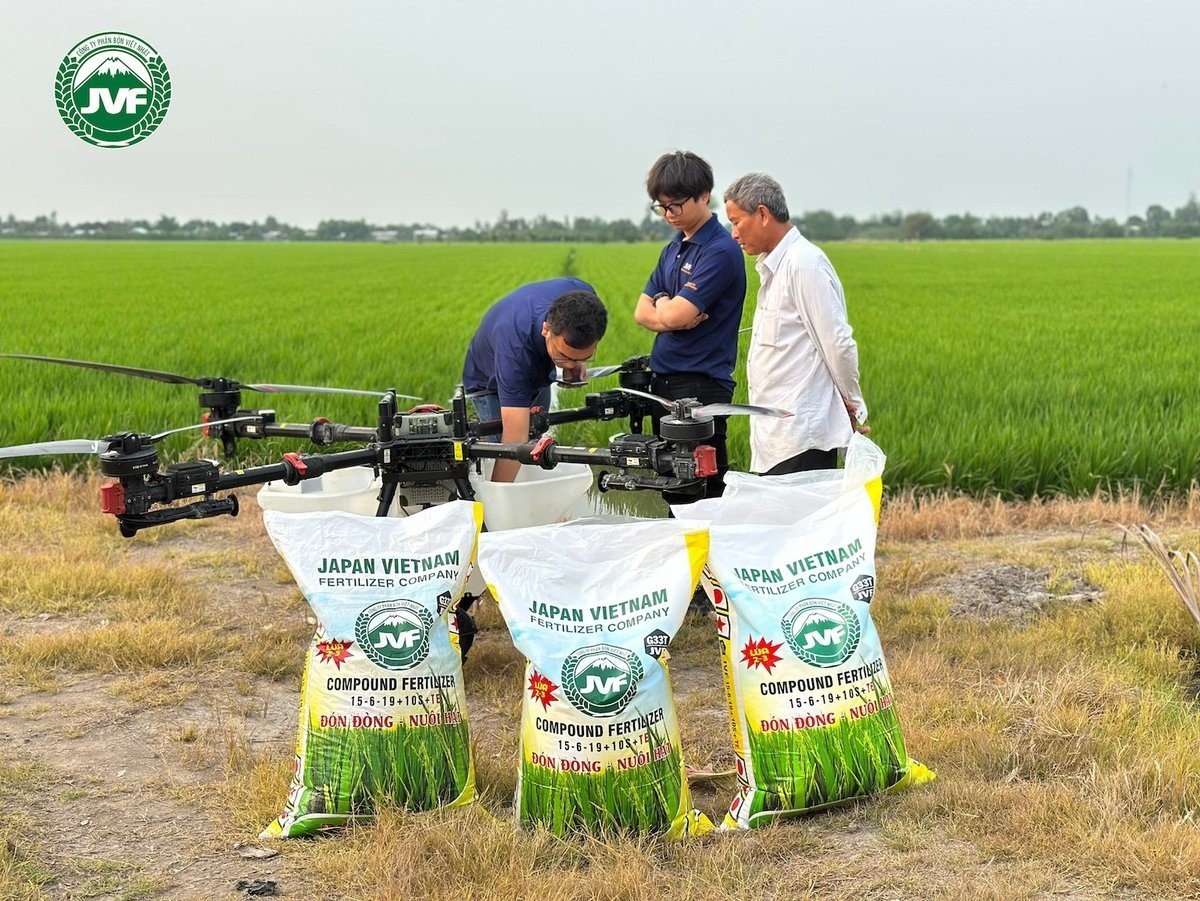
Japan Vietnam Fertilizer (JVF) and its strategic partner XAG Mekong provide agricultural drones to help farmers apply fertilizer fast, efficiently, and economically. Photo: Cam Tu.
In Mr. Phung's rice field (My Dong commune, Thap Muoi district, Dong Thap province), JVF and XAG Mekong successfully implemented the third fertilization with drone technology. A drone, also known as a UAV (unmanned aerial vehicle), is an unmanned aircraft controlled remotely or automatically. That is, instead of being controlled by humans, a drone is controlled through a remote or programmed controller to automatically perform specific tasks.
During the implementation process, technical staff of Japan Vietnam Fertilizer Company monitored and evaluated the effectiveness of each type of Japan Vietnam NPK fertilizer:
Stage 1: Japan Vietnam NPK 18-8-6+13S+TE
Stage 2: Japan Vietnam NPK 16-16-8+13S+TE
Stage 3: Japan Vietnam NPK 15-6-19+10S+TE.
The initial results show that the rice fields using Japan Vietnam NPK fertilizer combined with drones have a markedly higher efficiency compared to the fields applying single fertilizer according to the traditional method. Thanks to the ability to spread fertilizer quickly and accurately and reduce loss, this model helps save costs, improve productivity, and optimize the fertilization process.
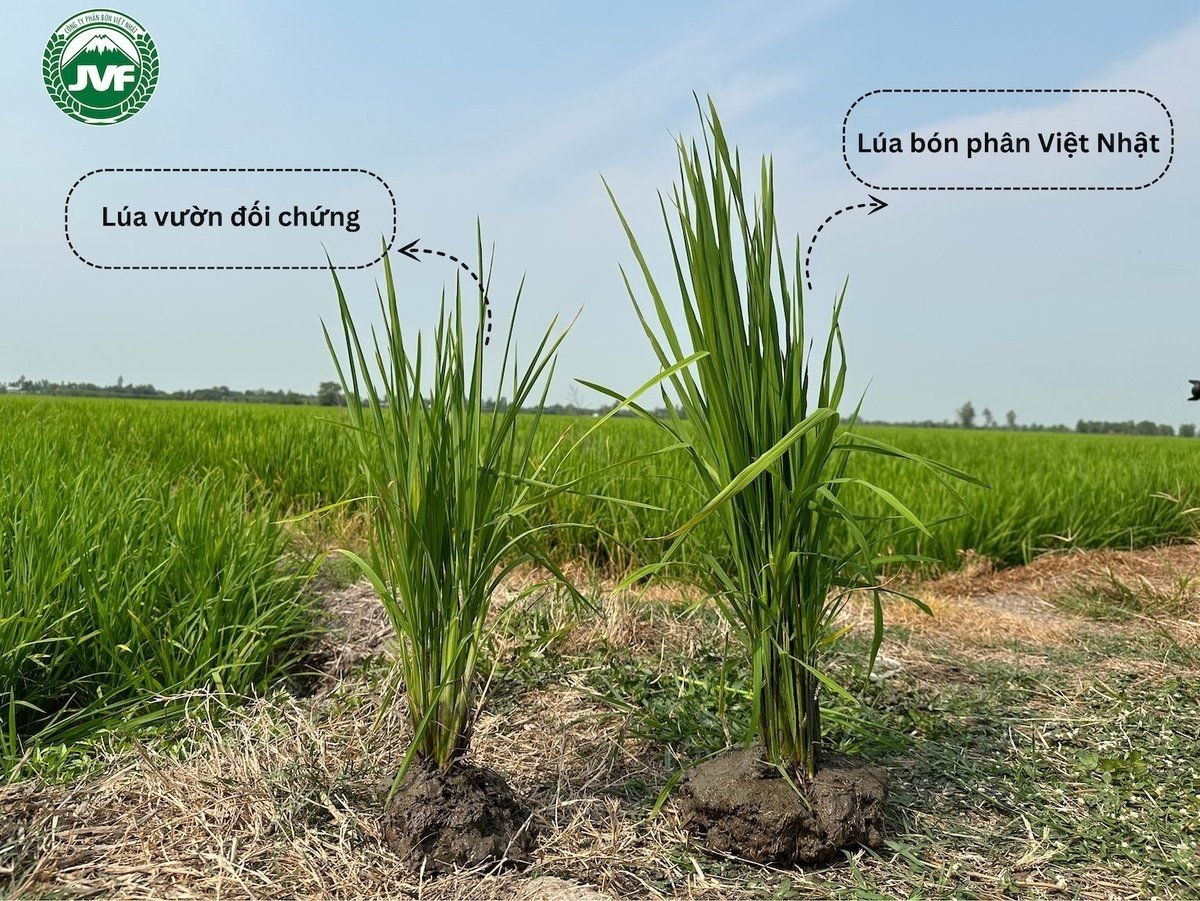
Rice fields using Japan Vietnam NPK fertilizer combined with drones have a markedly higher efficiency compared to the fields applying single fertilizer according to the traditional method. Photo: Cam Tu.
After the fertilization session, Japan Vietnam Fertilizer held a seminar on "Sustainable Agricultural Model" in My Dong commune, Thap Muoi district, Dong Thap province, attracting the participation of a large number of farmers. This is an opportunity for JVF to share about the specialized nutrition solution set for rice plants, helping farmers to better understand the role of each fertilization period and the benefits when applying modern technology to farming to optimize the productivity and quality of rice grains.
According to the leadership of Japan Vietnam Fertilizer, right from the beginning, Japan Vietnam fertilizer particles since production have targeted fertilization with drones. Thus, the unit has applied the leading technology with a uniform particle size, balanced nutrition in each particle, and product moisture of about 2%, which is much lower than the current registration standard. In addition, Japan Vietnam fertilizer products use special pellet materials to help fertilizer particles have optimal hardness and limit clumping, thereby optimizing the drone's fertilizer spread at the highest speed.
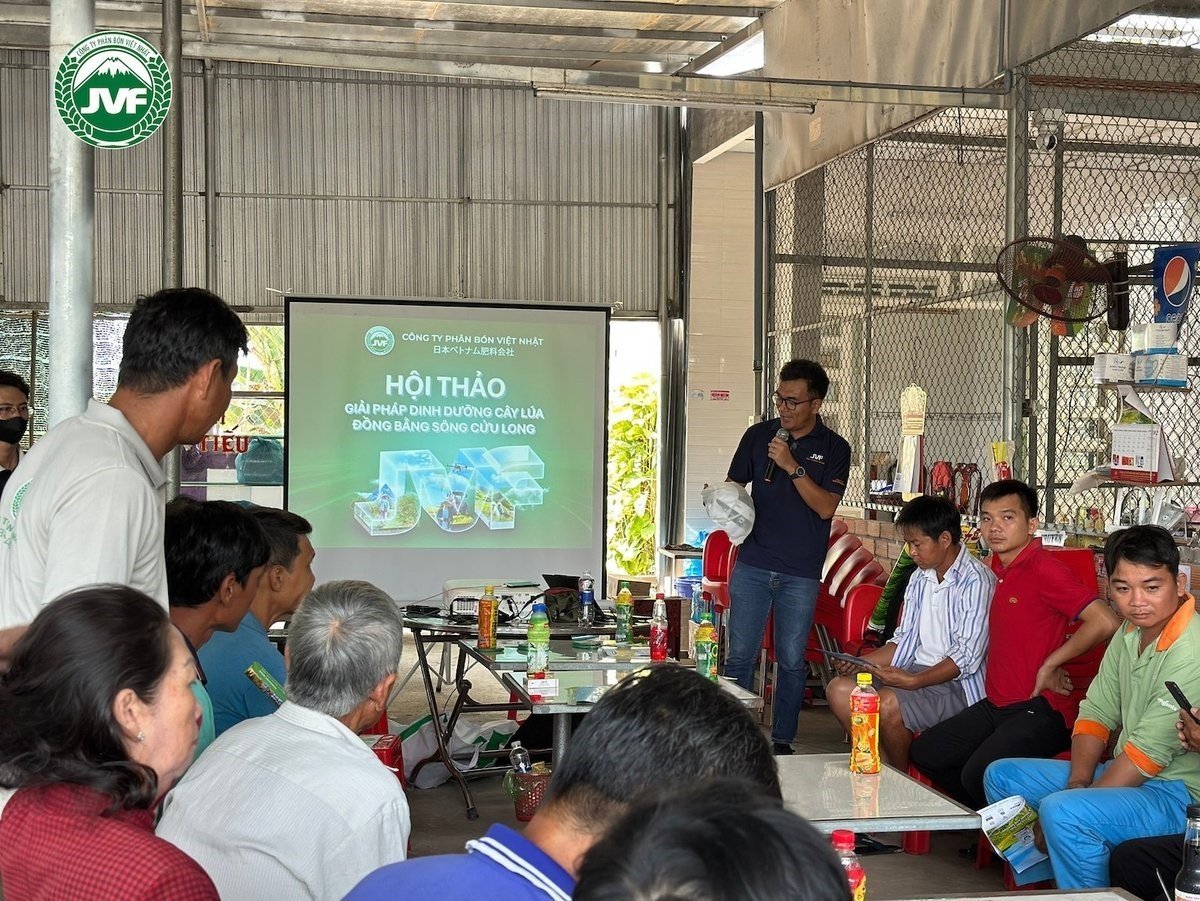
Viet Nhat Fertilizer held a seminar on 'Sustainable Agricultural Model' in My Dong commune, Thap Muoi district, Dong Thap province, to share about the specialized nutrition solution set for rice plants, helping people to cultivate effectively. Photo: Cam Tu.
Optimize fertilization efficiency: Drones have the ability to spread evenly on the surface of the field, helping rice plants absorb nutrients better.
Save labor costs: Significantly reduce labor compared to the traditional manual method.
Reduce fertilizer loss: JVF's production technology helps the nutrition in fertilizer be optimally absorbed by plants, limiting nutritional losses and helping to save fertilizer investment costs.
Be friendly to the environment and protect the health of users: Fertilize accurately, reduce negative impacts of fertilizer, reduce labor, and limit residues of chemicals in soil and water.
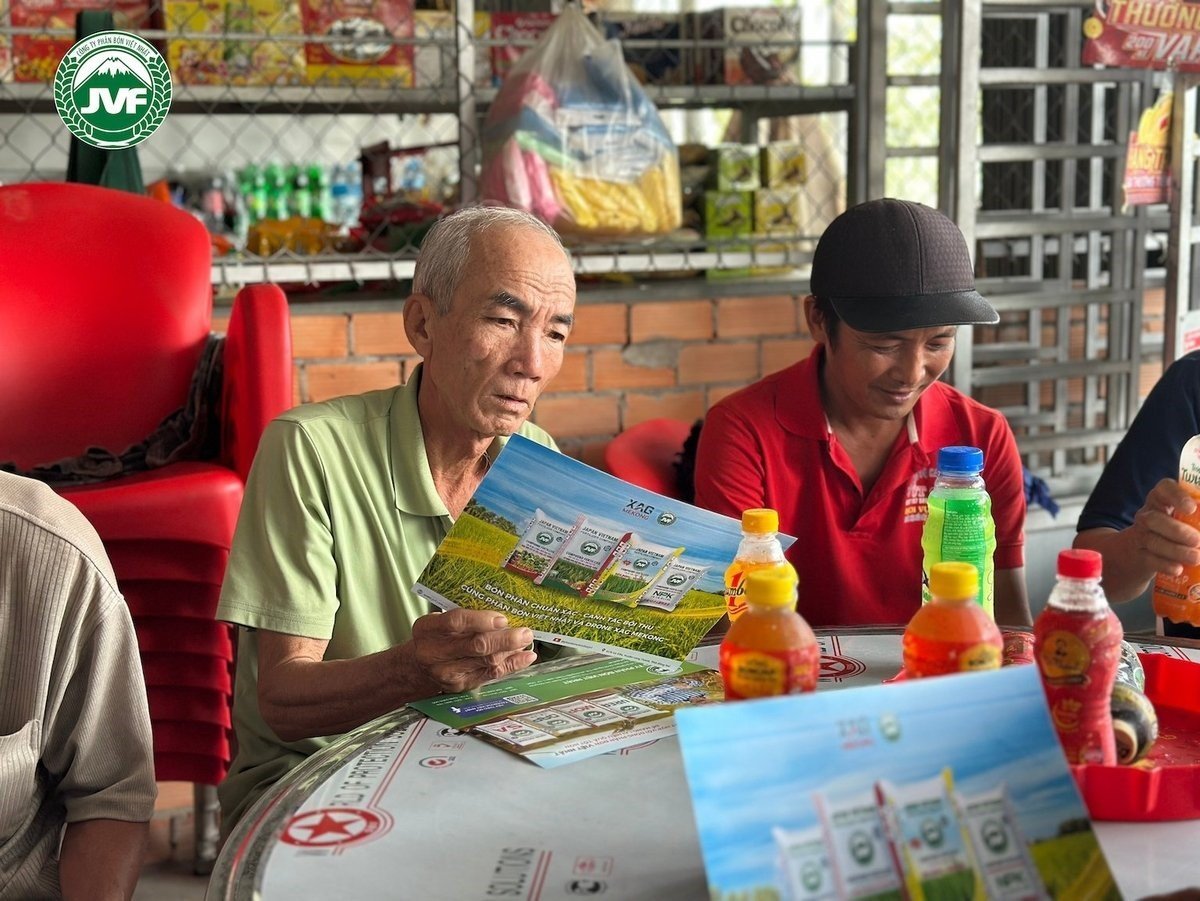
Farmers find out information after witnessing Japan Vietnam Fertilizer's performance of fertilization with a drone. Photo: Cam Tu.
According to the leadership, Japan Vietnam Fertilizer and XAG Mekong do not stop at the model testing but will continue to expand cooperation in the coming time. The two companies are committed to bringing drone technology to more localities in the Mekong Delta, helping farmers change traditional fertilizer spreading practices, improve production efficiency, and aim for modern and sustainable agriculture.
In order to help farmers get used to fertilizing with drones, JVF-XAG will have a program to support costs of fertilizing with XAG's drones when farmers use Japan Vietnam NPK fertilizer for rice in some Mekong Delta provinces.
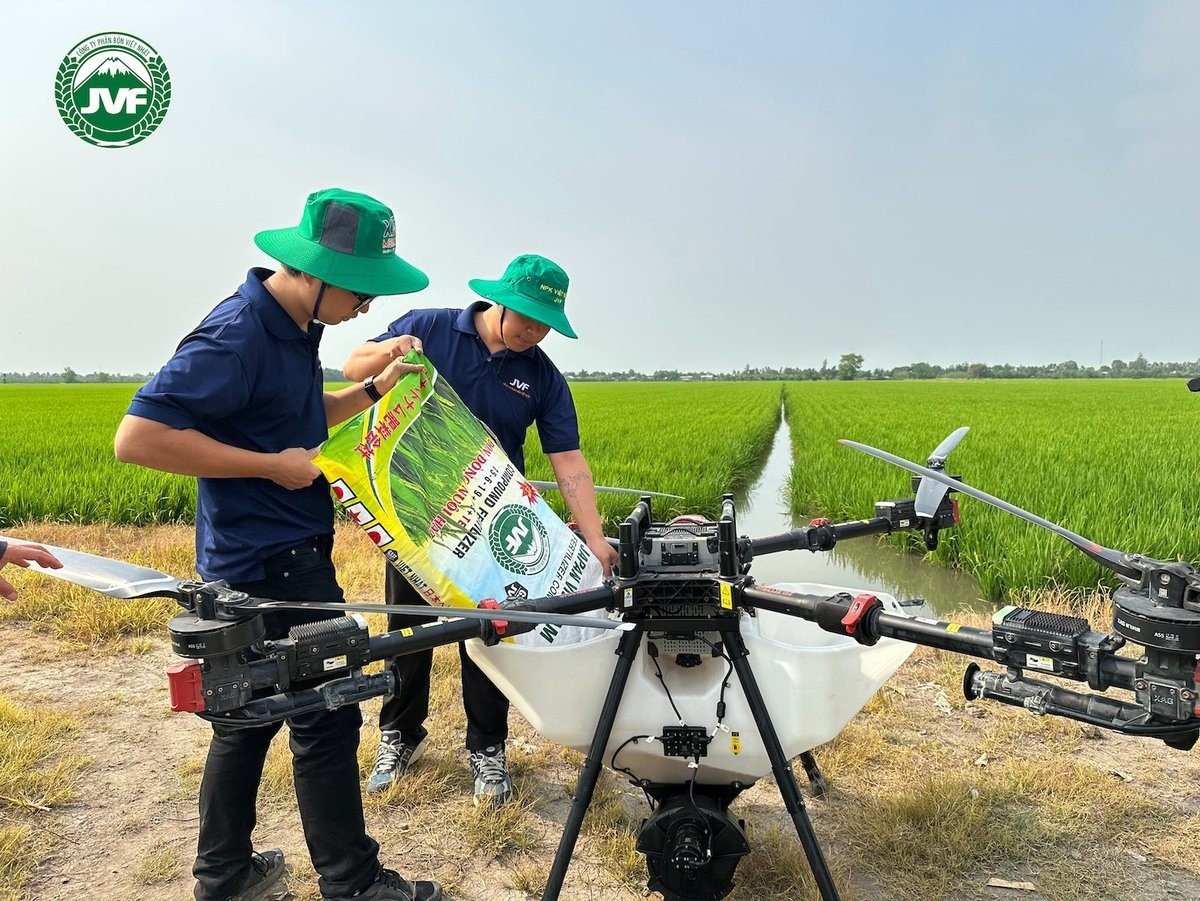
The technical staff of Japan Vietnam Fertilizer performed fertilization with a drone on the rice field applied with Japan Vietnam fertilizer. JVF-XAG will have a program to support costs of fertilizing with XAG’s drones when farmers use Japan Vietnam NPK fertilizer. Photo: Cam Tu.
Farmers nationwide who are interested in the model of fertilization with drones can directly contact Japan Vietnam Fertilizer Company for detailed advice and participation in testing programs in the coming time. The leaderships of Japan Vietnam Fertilizer and XAG Mekong are looking forward to joining hands and contributing to bringing Vietnamese agriculture further on the path of modernization, especially in the field of agriculture.
Translated by Thu Huyen
![Advanced mariculture – an inevitable trend: [1] Moving offshore](https://t.ex-cdn.com/nongnghiepmoitruong.vn/608w/files/phucpm/2025/05/18/0252-2436-nuoi-bien-6-162148_783.jpg)
(VAN) Mariculture using advanced technology and moving offshore is an inevitable trend, as nearshore areas increasingly reveal limitations.
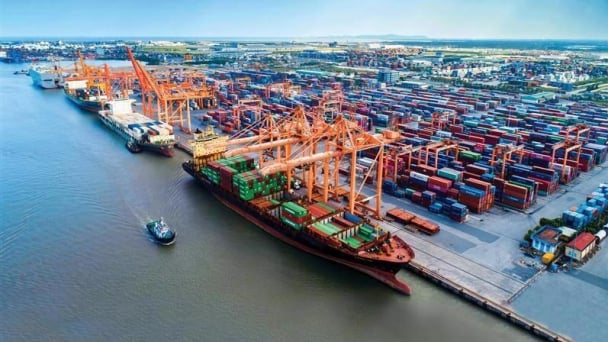
(VAN) South Korea is currently the second-largest investor in Hai Phong in terms of the number of projects (186 projects) and the largest in terms of total registered investment capital, reaching USD 14.2 billion.
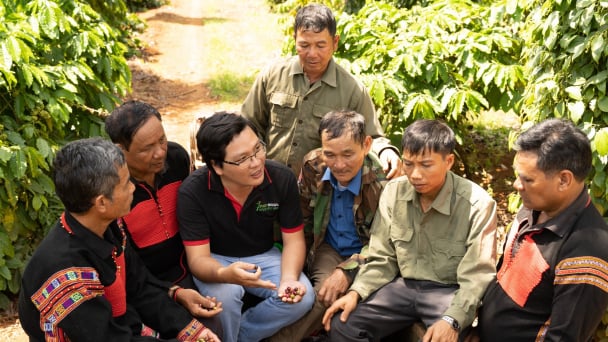
(VAN) As consumers become more environmentally conscious, legal regulations grow increasingly stringent...
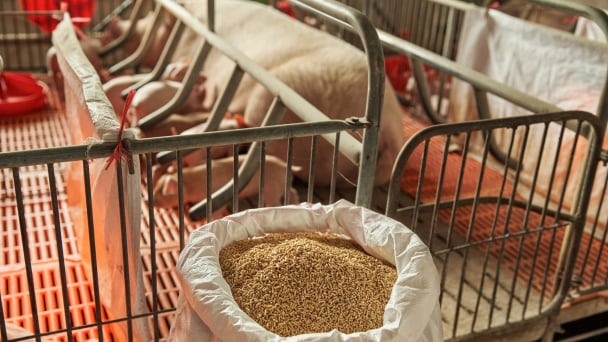
(VAN) CJ Feed&Care officially launched the FCR improvement campaign called “2025 Find Challenge Reach” in April 2025. In Vietnam, this campaign is implemented by CJ Vina Agri.
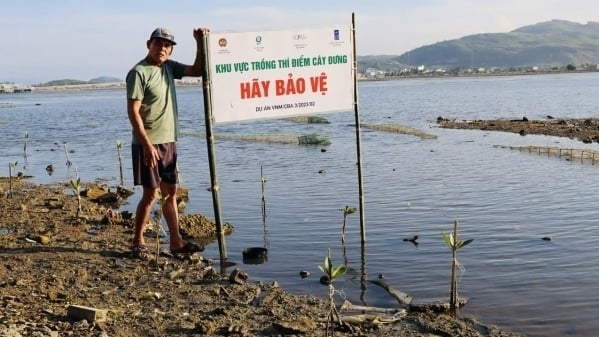
(VAN) The swamp in Pho Thanh is gradually being covered with red mangrove, creating a favorable environment for producing clean, high-quality salt.
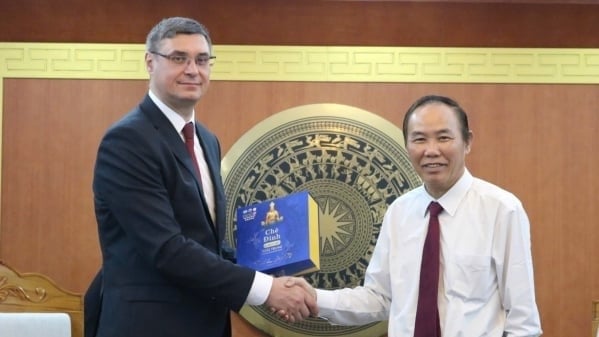
(VAN) The trade turnover of agro-forestry-fishery products is growing significantly, along with investment cooperation commitments that are opening up new development directions between Vietnam and Russia.

(VAN) Khanh Hoa is investing over 545 billion VND to develop 240 hectares of high-tech marine aquaculture in order to guarantee a consistent supply of seafood exports and achieve the USD 1 billion target.